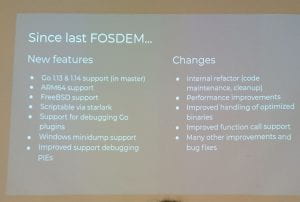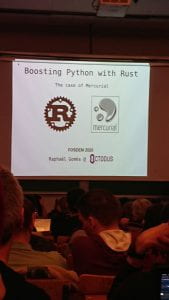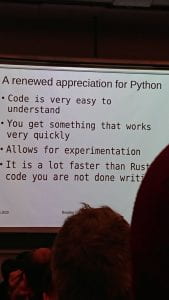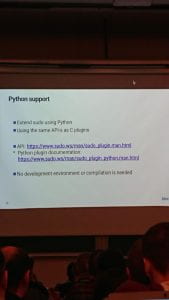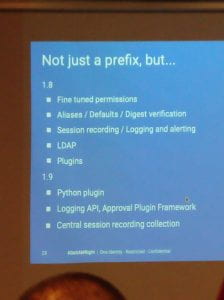This talk is about creating a simple end interface for running your machine learning code.
Anand is the co-founder of https://rorodata.com/ a Platform-as-a-Service,
designed for data scientists, for running machine learning code.
Machine learning libraries that were mentioned that I had not come across before:
PyTorch – https://pytorch.org/ – a deep learning framework for fast, flexible experimentation.
joblib – https://pypi.org/project/joblib/ – is a set of tools to provide lightweight pipelining in Python.
The Rorodata firefly tool creates a RESTful API for your client defined functions.
The config format is YAML and not unlike defining a Bitbucket pipeline.
The end user only needs to a Python function, define API with firefly, deploy and an endpoint on the paas is created.
You can add further system requirements to the runtimes available in rorodata.
It also supports configuring CORs domains.
You can define the size and scale of platform your code will be run against.
You can also use the power of rorodata on your own servers or cloud infrastructure using https://github.com/rorodata/rorolite NB: size/scale config are not available but otherwise can use the same code.
